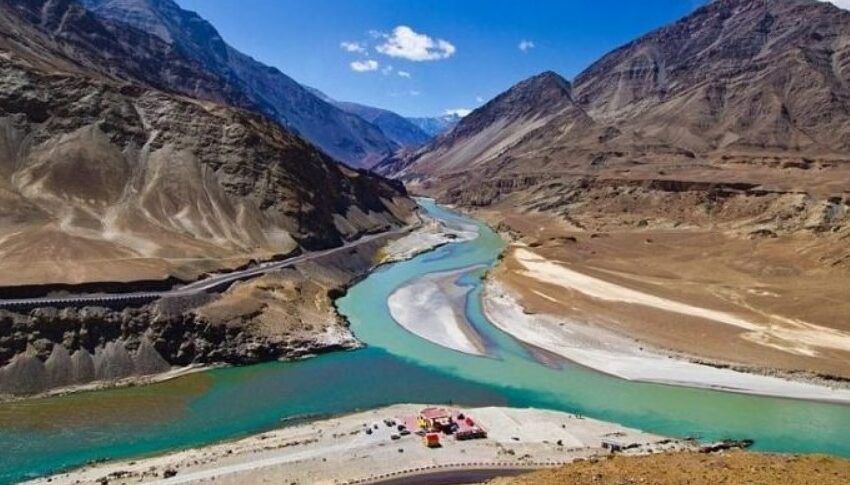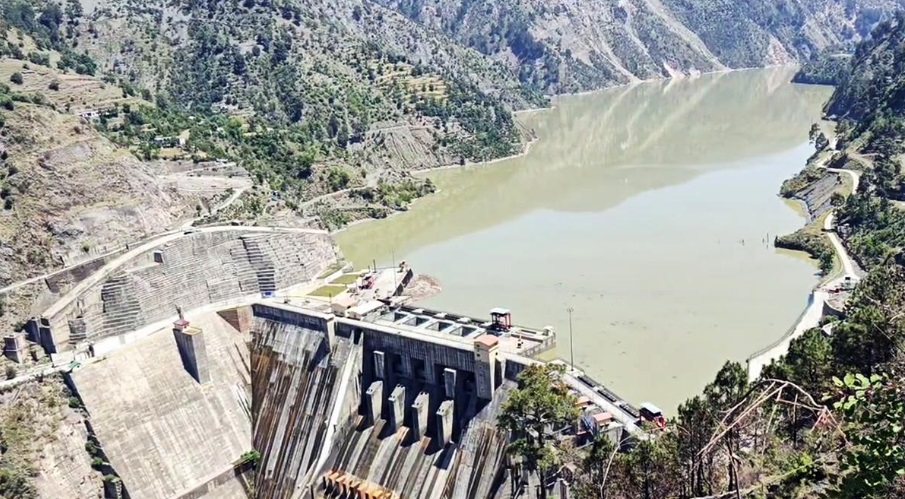
Why Pakistan’s Challenge to India’s Suspension of the Indus Waters Treaty Is Unlikely to Succeed
Pakistan, angered by India’s suspension of the Indus Waters Treaty in the aftermath of the Pahalgam attack, is looking to challenge the decision on the international stage.
A Pakistani minister said that Islamabad has four options to consider, including moving the International Court of Justice. However, this plan is unlikely to bear any positive results. Tensions between India and Pakistan are higher than usual in the aftermath of the Pahalgam terror attack, which claimed the lives of 26 people, in Pahalgam’s Baisaran meadow.
Following the dastardly attack, New Delhi, vowing it would seek retribution for the tragedy, suspended the crucial Indus Waters Treaty of 1960 with Pakistan, adding that it would remain on hold until such time that “Pakistan credibly and irrevocably abjures its support for cross-border terrorism”. However, this move has angered Islamabad immeasurably, with Pakistan Prime Minister Shehbaz Sharif’s office releasing a statement, calling it an ‘act of war’. “Any attempt to stop or divert the flow of water belonging to Pakistan as per the Indus Waters Treaty, and the usurpation of the rights of lower riparian will be considered as an Act of War and responded with full force across the complete spectrum of National Power,” said the official statement.
Days after issuing the threat, Islamabad is now preparing international legal action against New Delhi for putting the pact in “abeyance”.
As we await Pakistan’s future moves, we take a closer look at what could Islamabad possibly do in regards to the Indus Waters Treaty and if its plan would work.
India suspends Indus Waters Treaty with Pakistan
Day after the Pahalgam attack, the Narendra Modi government took a slew of measures to punish Pakistan for its continued support of cross-border terrorism. One of the many was to put in abeyance the Indus Waters Treaty, which had been signed between the two nations in 1960.
The treaty specifies how the waters of six rivers and their tributaries, called the Indus waters, will be used by the two countries. As per the pact, India has unrestricted use of the waters of the three eastern rivers: the Ravi, the Sutlej and the Beas. Pakistan has control of the Indus, the Chenab and the Jhelum, known as the western rivers.
Notably, this pact has survived the three wars — in 1965, 1971, and 1999 — that the two countries have fought over the years. However, stating ‘enough is enough’, India has suspended this treaty, causing much anxiety in Pakistan.
This has put the neighbouring country in a tight spot; Islamabad is highly dependent on the Indus Waters for its agriculture, which contributes 24 per cent to the country’s gross domestic product (GDP) and 37.4 per cent to employment in 2024. The country’s statistics bureau says that the majority of the population is directly or indirectly dependent on the agriculture sector. According to the World Bank, the country’s current population is about 247.5 million.
Ali Haider Dogar, one of the many Pakistani farmers, speaking to The Guardian explained just how they would be impacted by this decision. “We fear India can cause flash floods or stop water destined for our crops,” he said. “India can starve us. Because now India won’t be responsible to share any data about flash floods or dam projects with Pakistan.”
Khalid Khokhar, president of the Farmers’ Association in Pakistan also echoed similar comments. “There should be no politics on water. It is our lifeline,” he told The Guardian.
Pakistan’s options to challenge IWT’s suspension

However, now Islamabad is preparing to challenge India’s suspension of the Indus Waters Treaty, saying it has a strong legal basis for appeal.
Aqeel Malik, Pakistan’s Minister of State for Law and Justice, told Reuters late on Monday that Islamabad is working on plans for at least three different legal options, including raising the issue at the World Bank – the treaty’s facilitator.
Another option for Pakistan is to approach the Permanent Court of Arbitration or at the International Court of Justice in the Hague where it would claim, as per Malik, that India has violated the 1969 Vienna Convention on the Law of Treaties.
The other option that Islamabad has, said Malik, is to raise the issue at the United Nations Security Council.
He further added, “All the options are on the table and we are pursuing all appropriate and competent forums to approach.
“The treaty cannot be suspended unilaterally and cannot be held in abeyance, there is not (such a) provision within the treaty,” said Malik.
The Pakistani minister also added that it is highly probable that Islamabad would choose more than one option to seek justice in the matter.
India’s defence to suspend IWT
However, India’s water resources officials believe that New Delhi has standing if the matter was legally challenged by Pakistan. Kushvinder Vohra, a recently retired head of India’s Central Water Commission told Reuters: “There are very limited options (for Pakistan) … I can say that there are solid grounds for us to defend our (India’s) action.”
Others also note that Pakistan’s plan may bear no result.
But why?
In the case of the International Court of Justice, India has maintained that it would abide by the court, but in a declaration signed by External Affairs Minister Dr S Jaishankar, India has listed down 13 exceptions wherein ICJ shall not have jurisdiction over India.
One of the caveats signed by India is — ICJ shall not have jurisdiction for “disputes with the government of any State which is or has been a Member of the Commonwealth of Nations”. This means that Pakistan, which is a Commonwealth nation, can’t take New Delhi to the ICJ, since its jurisdiction is not valid in the case.
Additionally, another caveat reads that ICJ shall not have any jurisdiction in “disputes relating to or connected with facts or situations of hostilities, armed conflicts, individual or collective actions taken in self-defence, resistance to aggression, fulfilment of obligations imposed by international bodies, and other similar or related acts, measures or situations in which India is, has been or may in future be involved, including the measures taken for protection of national security and ensuring national defence.”
Approaching the World Bank in this matter will also not help Pakistan. This is because the World Bank doesn’t have any jurisdiction. While the World Bank has a role in appointing neutral experts and arbitrators, it is not an enforcement authority.
As NDTV reports, while the global financial body facilitates appointments of neutral experts and chairs of courts of arbitration, it is limited to the role of an appointer of such posts and cannot be responsible for the treaty’s overall management or its enforcement.
Former Pakistani federal law minister, Ahmer Bilal Soofi, in a 2016 Dawn report, had also stated that Islamabad had few options if India chose to hold the treaty. “In case India ‘revokes’ the treaty, it literally means it has shunned it. The dispute resolution mechanism under Article IX and Annexes F and G of the IWT will be of no use and assistance to Pakistan. It is limited to a dispute under the treaty and not meant to provide for specific performance of the treaty itself,” Soofi had told Dawn.
He further stated, “Since there is no provision in the IWT about its duration or suspension, there is no avenue that Pakistan can approach for ‘revival’ of the treaty. Nor can Pakistan approach the International Court of Justice seeking specific performance to implement the Treaty because of the Indian reservation given under the ICJ statute that bars the filing of a case by Pakistan against India. In other words, Pakistan will not be left with any peaceful mechanism for seeking performance of the treaty by India,” Soofi said.


